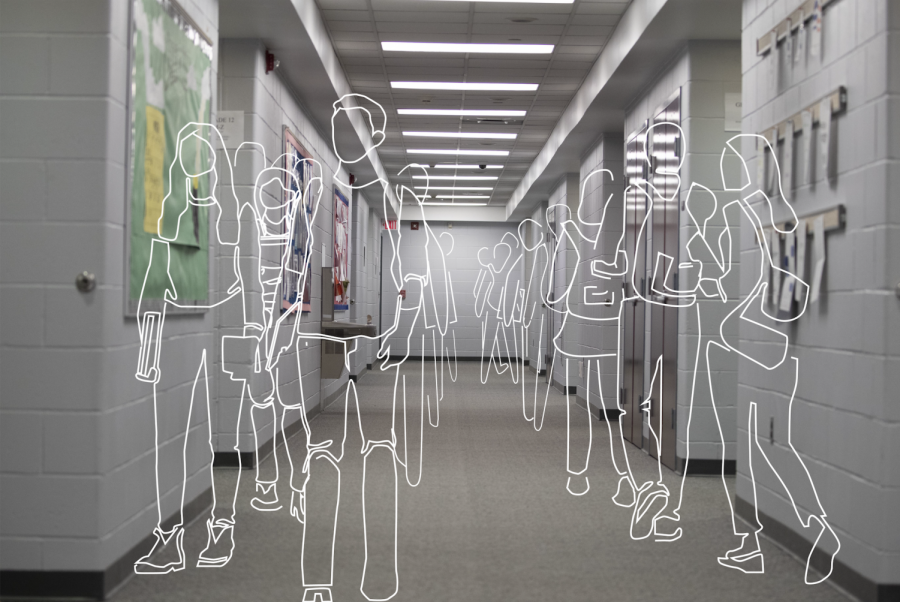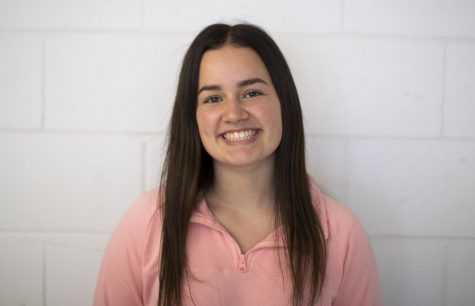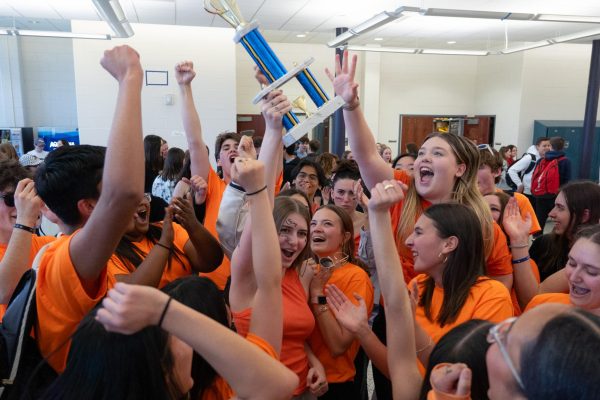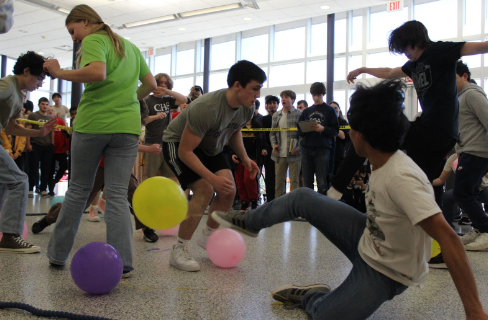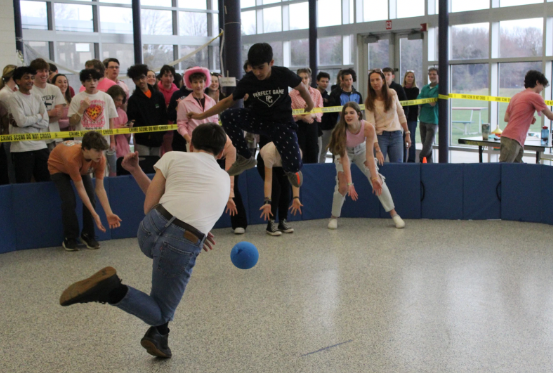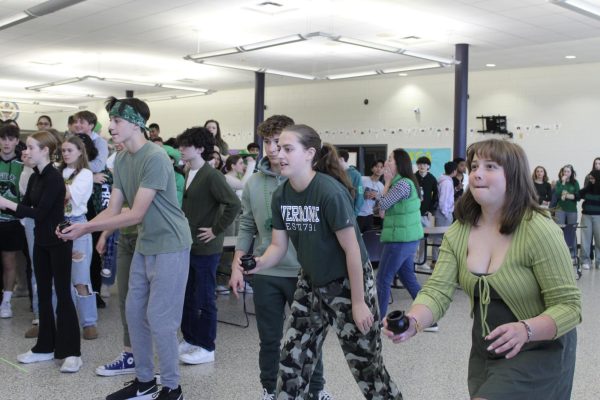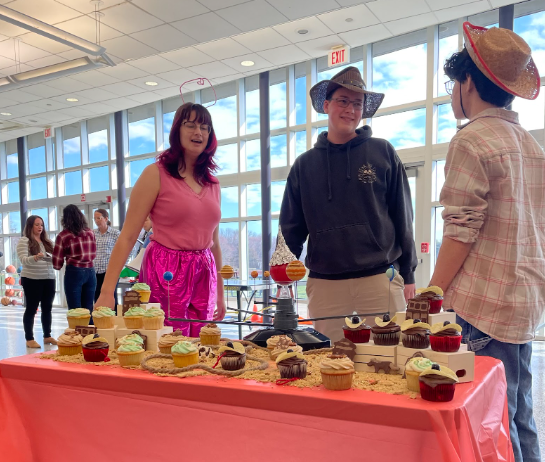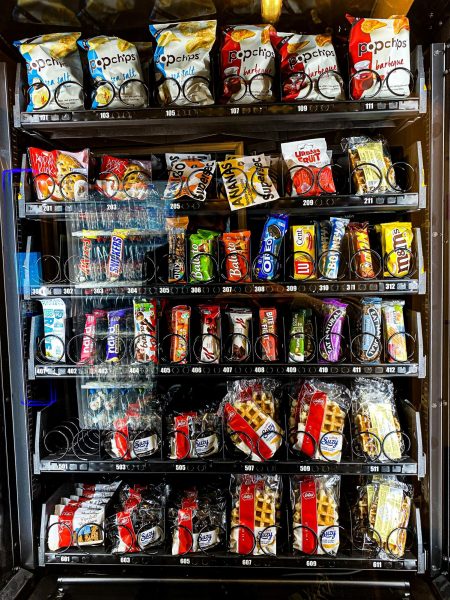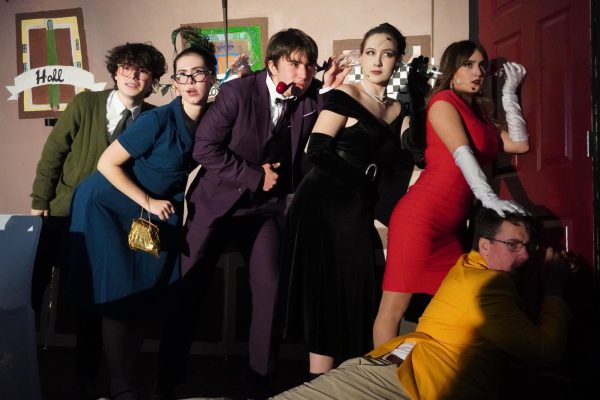Coronavirus closes schools, cancels culminating events
Blot graphic by Dani McLaughlin
Principal James Gleason began worrying about the continuation of school and hosting large events following the Cultural Communications festival on March 6. Starting the next Fri. with the annual Fashion Show, CHS events that generally bring in large numbers of people from both in and outside the school began to get cancelled. Virtual learning began March 16 and will now continue through the last day of school, June 18.
May 8, 2020
The hallways of CHS buzzed on Wed., March 11 after students received an email that the upcoming Friday would follow an early dismissal schedule so that the staff could prepare for the possibility of a school closure. A day later, a follow-up email was sent, closing school for the day. That one day turned into an indefinite shutdown and on May 4, COVID-19 closed all New Jersey schools for the remainder of the year, per an announcement by Governor Phil Murphy.
Principal James Gleason began worrying about the continuation of school and hosting large events following the Cultural Communications festival on March 6. Starting the next Fri. with the annual Fashion Show, CHS events that generally bring in large numbers of people from both in and outside the school began to get cancelled. Virtual learning began March 16 and will now continue through the last day of school, June 18.
Initially, Gleason didn’t see the closure as a matter of if students would come back, but rather when. However, as the circumstances developed in other countries and across the country, the reality of the situation became evident to him.
“I think that constant struggle of unknown just kind of lent itself to closing the school, closing for the remainder of the school year,” Gleason said.
Science teacher Erin Wheeler was anticipating an extended closure, whether that was full-year or not. In preparation, Wheeler sent her students home with the essentials for online learning and resources to find anything else that was needed.
“I hope my students went home with all the materials they needed. They only needed a periodic table, their textbook and a calculator,” she said. “If they didn’t take the materials with them, they could easily find them online or ask a friend for a picture of the textbook pages.”
Like Wheeler, history and effective speech teacher Bill Clark said he kept the saying “plan for the worst, expect the best” in the back of his mind when he made plans for his students, but having a marking period class like effective speech made this hard.
“History was easy to prepare for. Grab some notes, hand out textbooks just in case,” Clark said. “Effective Speech was a mystery all together. My third marking period students, no problem. Then the fourth marking period began; speech online is a whole new beast that no one could prepare for… It is a challenge on both sides.”
Live studio production teacher Jennifer Cornine found some issues similar to Clark, as most electives require hands-on learning, especially Television where students learn to use the studio equipment. Despite the absence of this experience, Cornine remains positive about the way she and her classes adjusted.
“I think we pivoted really well and what we did in Live and are doing in Advanced Studio Production is a mirror of what current studios shows have had to do,” Cornine said. “So in a unique way the experience gained during this pandemic is different but arguably as valuable; we are still achieving our expected learning outcomes- gaining real-world television experience.”
On April 21, students received an email from Gleason that changed marking period 4 grades from weighted to a point system and cancelled all finals. Going forward, this procedure will continue, but Gleason explained that school is “gonna have to end earlier than we typically would.” This conclusion comes from many different factors, such as students needing to empty lockers and return books and teachers needing to take inventory of supplies, all while practicing safe social distancing and allowing enough time for textbooks to lose any trace of the virus, according to current guidelines.
With the termination of classroom learning for the rest of the year came the cancellation of all pending events, including important culminating events for seniors. Although most people anticipated this news before Gleason’s email on May 5, he knew “everyone was waiting for that official word from [him].”
The Senior Dinner was cancelled even before Governor Murphy’s announcement, but Gleason, along with English teachers and class co-advisers Kathryn Diver and Emily Crelin were holding out hope for graduation. Following the news, Gleason, Diver and Crelin began planning the best way to keep the ceremony special while being held virtually.
“[Graduation is] where your family members are able to be there and to celebrate with you and to kind of move onto that next phase in your life,” Gleason said. “So we need to do something, we need to celebrate the seniors and so we are committed to doing some kind of graduation, which is most likely gonna be a virtual graduation. It’s just a matter of putting all the pieces together.”
Senior Colin Martin of Middletown believes that “the power of our internet now makes it really easy to connect and we should do everything we can to [hold events virtually].”
Senior Mary Eknoian of Wall feels that the loss of these events and the sense of closure was the hardest for her personally.
“You spend three years looking forward to being Color Wars captains, Senior Dinner, Prom and Decision Day, and suddenly all of that is taken away,” Eknoian said.
Everyone is feeling the loss of the last few months of school. Junior Jake Polvino of Tinton Falls, like Gleason, didn’t expect the closure for good initially, but as cases got worse and other states closed he lost most hope of returning to school.
“More and more [states] kept closing [schools], and I was getting less and less confident that we were going to go back to school this year,” Polvino said. “Then, New York finally closed their schools for the year, and I was sure that we were gonna be closed for the year.”
Senior Grace Quakenbush of Wall felt the same as Polvino, but was still upset when the closure became official.
“I was just disappointed when Murphy came out with the news. I knew it was coming but there was still a part of me that was hoping we’d be back,” she said.
For Eknoian, who found out about Murphy’s announcement from a classmate on Google Meet, it led her to the CHS parking lot for “a moment of reflection.”
“I was just in disbelief that I had my last day at CHS and I didn’t even know it at the time,” Eknoian said.
Though Eknoian found the cancellation of events the most disappointing, Quakenbush wasn’t as upset about those as she was about missing the last few months of high school with her friends.
“We can always have summer prom and graduation, but it’s kind of hard to make up three months of lost time,” Quakenbush explained.
Eknoian offered her advice to underclassmen who still have time to make memories in high school.
“I know CHS can be tough at times, but never take it for granted. CHS has given me the most amazing high school experience and I would do anything to have one more day as a CHS student,” she said. “Be grateful, take every day with a grain of salt and most importantly work hard, play hard.”



